My Favourite Reads of 2020 (With Additional Artist Insights)
Hello, and welcome to the first book review of this blog!
Last year has been, frankly, a roller coaster to hell, but I’m quite lucky that the pandemic hasn’t impacted me heavily. Online art school kinda sucked, but we still managed to pull through the year. No one I knew was immediately affected by the virus, and my family is safe.
Actually, due to the lockdown, I’ve probably read more books last year than I have ever read in my life (wow, thanks COVID). I’ve opened up myself to many different genres, including fully delving into non-fiction. Some reads have changed what I think about art in general, as well as fuelling some of my creative endeavours. Some reads were also, personally, life-changing for me.
Last year, I read 26 books; a mixture of philosophy, epic fantasy and comic/manga series (true to my artist roots). I’ve written down my thoughts on 17 below, sprinkled with artist notes and epic quotes. These are all completely subjective and are listed in no particular order.
Hopefully, a few of these reads will be added to your own life-changing bookshelf!
Book Reviews
1. His Dark Materials by Philip Pullman
Genre: Sci-fi, Fantasy
Look at that. Epic. This is from the TV show, by the way.
This has become one of my favourite fantasy trilogies of all time. The delectable mix of sci-fi and fantasy is incredible. The first thing that came to my mind with this book is how much possibility Pullman presents us. If our soul was not hidden inside us, but out there for all the whole world to see, what would our society look like?
I also adore the adult characters here – they are deliciously complex (I still can’t figure them out!), and not one dimensional like in some other young adult books.
Artist Note: Pullman’s world is itching to be explored and painted. Incredible world-building, with just the right mix of steampunk, Victorian England, science and magic? Yes. No surprise I’ve already dedicated two of my first year RMIT animation projects to his books.
I stopped believing there was a power of good and a power of evil that were outside us. And I came to believe that good and evil are names for what people do, not for what they are.
2. 12 Rules For Life: An Antidote to Chaos by Dr Jordan B. Peterson
Genre: Self-help, Psychology
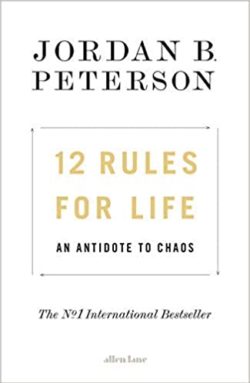
Dr Peterson is a contentious figure politics-wise, but I find his work and lectures to be raw and honest. He genuinely wants to help others, and this book expanded my worldview immensely.
It was a bit hard to read at times, and some of the allegories in the book are a bit dubious, but I think his ideas about human morality and his unflinching attitude towards honesty and integrity (tell the truth, or at least, don’t lie) was truly an eye-opener. His notion of slaying the “dragon”; dealing with any conflicts immediately really resonated with my past experiences. As he said, if you don’t, things will eventually fall apart in the worst possible way.
Faith is not the childish belief in magic. That is ignorance or even willful blindness. It is instead the realization that the tragic irrationalities of life must be counterbalanced by an equally irrational commitment to the essential goodness of Being.
3. The Barefoot Investor by Scott Pape
Genre: Finance
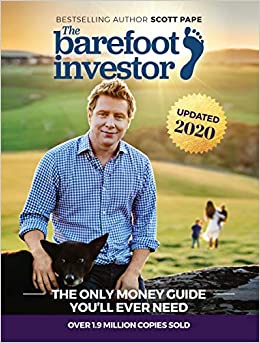
I read this book knowing absolutely nothing finance wise (never did any business subjects at school), and finished it feeling confident and prepared, with a plan ready to go. Seriously, read it. I recommend this to every single student, ever. Even started investing a teeny-bit. I won’t quote any of this; The Barefoot Investor is something you need to experience as a whole.
Artist Note: Will definitely help me avert the ‘starving artist’ stereotype (which is bogus, by the way. )
4. The Dictator’s Handbook: Why Bad Behavior is Almost Always Good Politics by Bruce Bueno de Mesquita
Genre: Politics, Nonfiction
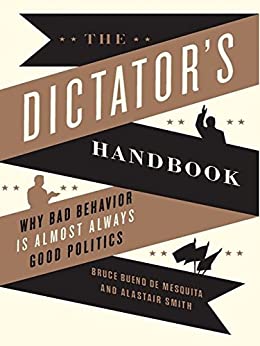
This book certainly was a big eye-opener in terms of politics in general. It sobered my general arbitrary belief that democracy = good, and dictatorship = evil.
Society has ingrained the notion that these two political systems are light years apart, when there is really, only a few differences. Spoiler: both systems, unsurprisingly, bet on the fact that the primary concern of politicians is to stay in power. The means of how they do it differs.
Well, I considered doing politics as a career, but this ensured that I will never get into it. Ever.
If you are confused about everything relating to politics and want to understand how it all works, I highly recommend this book. It really makes our current political climate so much clearer.
Artist Note: Hm, I guess the politics route is a complete 180 from what I’m doing now, but, uh, I guess this will useful for designing characters that are realistic politicians?
In politics, coming to power is never about doing the right thing. It is always about doing what is expedient.
5. The 7 Habits of Highly Effective People by Stephen Covey
Genre: Self-help, Nonfiction
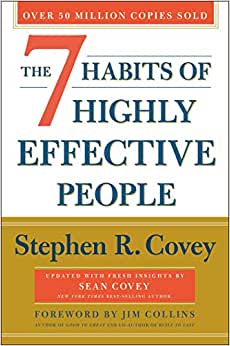
This book is a must-read for all students and artists alike.
One life-changing idea that Covey presents is the notion of paradigms; the lens in which we view the world. Usually, problems in our lives stem from not the problem itself, but how we view the problem.
Another key takeaway is to always be proactive in the things that we can control, which is our circle of influence. This book was a crutch when I was going through extremely difficult times, where the only thing I could control about my situation was how I interpreted and responded to it. You may not be blamed for the situation you are in, but you are always responsible for it.
Most people do not listen with the intent to understand; they listen with the intent to reply.
8. Looking for Alaska by John Green
Genre: Young Adult, Romance
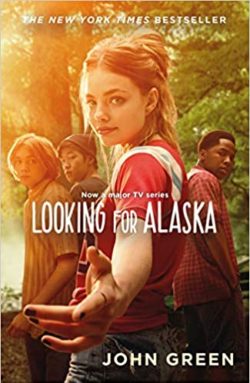
Great god, I am usually not a big fan of the romance genre, but this John Green book made me bawl my eyes out. The way he writes emotion is just so gut-wrenching and vivid. That’s all I can say without spoiling the book.
The only way out of the labyrinth of suffering is to forgive.
9. Everything is F*cked: A Book About Hope by Mark Manson
Genre: Nonfiction, Self-help
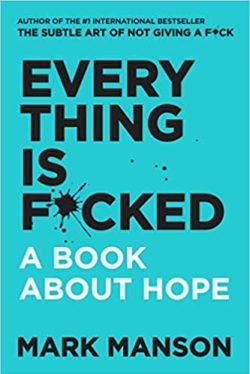
Mark Manson does it again.
His first book, which I read two years ago, was also a life-changer. A key idea that stuck with me was the difference between the Feeling Brain and the Thinking Brain, which highlights the problem with self-control. You think your Thinking Brain is in control, that yes, logically, doing this habit will make your life much easier, but your emotions go f*ck it (don’t they always?).
Hint: The Feeling Brain is in control, guys.
The Formula of Humanity states, “Act that you use humanity, whether in your own person or in the person of any other, always at the same time as an end, never merely as a means.”
10. Harleen by Stjepan Šejić
Genre: Comics (DC)
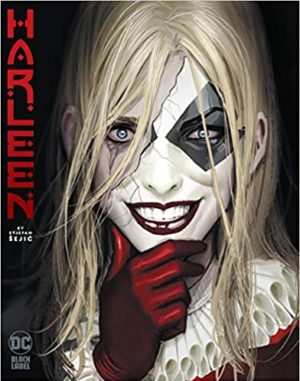
Woo hoo, first comic of this list! I’m not usually a huge fan of superhero stuff, but this 3-part comic series takes the cake. I’m pretty sure nearly everyone knows of Harley Quinn, the Joker and their “mad” love story, but I don’t think any of DC’s publications have really delved into the terrible nuances behind it, until this one.
This has to be the most realistic and tragic depiction of Harley (or, Harleen) I’ve ever seen. Her painfully human motivations and (mostly) altruistic beginnings slowly morph into something darker as she digs in deeper, deeper, and deeper…
Šejić makes Harley Quinn’s backstory infinitely more devastating.
Artist Note: The panel compositions in these are stunning, especially some of the less conventional layouts. These are excellent for reference.
11. Lockwood and Co: The Screaming Staircase by Jonathan Stroud
Genre: Fantasy (Paranormal), Young Adult
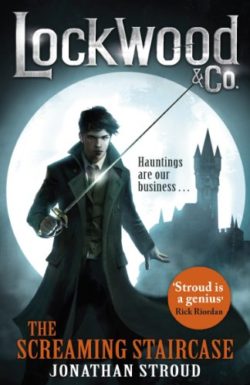
Ever need a perfect blend of ghosts, dead-pan humour, with a dash of creepy mysteries? This one’s for you.
Lucy’s (main character) narrator voice is witty and sardonic; I absolutely love it. The character interactions make you chuckle, and the mysterious plot of ghost-hunting keeps you on your toes. I love the grounded approach to the supernatural genre Stroud takes. Common household items are used to fight the dead, and Stroud’s world seriously can be a believable alternate universe. Can’t wait to illustrate some of the scenes in the future. Also binge-read this in a couple of days.
Artist Note: Surprisingly (or not), it was fan art of this series that got me into it. Once again, the Victorian-era descriptions in these books has got my artist brain buzzing. I will reciprocate the fan art cycle someday. Seriously, some of the intense scenes in this book will make for great compositions!
“Okay…’ I hurried on. ‘But why me?’
‘You’re a girl,’ Lockwood called. ‘Aren’t you supposed to be more sensitive?’
‘To emotions, yes. To nuances of human behavior. Not necessarily to secret passages in a wall.’
‘Oh, it’s much the same thing.”
12. Harry Potter and The Prisoner of Azkaban by J.K Rowling
Genre: Fantasy, Young Adult
Sorry Warner Bros, but the books are better.
I know, I’m quite behind on the Harry Potter fandom, but I’ve got to say, the movies don’t quite do the books justice. I love how sassy Harry is, and book Ron is so much better. This might be my favourite book of the series yet. Oh, yes, and the Marauders get so much more love.
Artist Note: Fanart and inspiration everywhere. Need I say more?
13. The Choice: Embrace the Possible by Dr Edith Eger
Genre: Nonfiction, Memoir
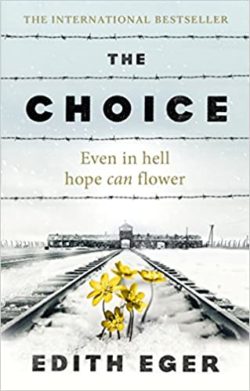
This read was heart-wrenching as it was beautifully uplifting. Dr Edith Eger’s story is life-changing. She was only 16 years old in 1944 when she was sent to Auschwitz and thrust into the most hellish experience imaginable. One of them being made to dance for Josef Mengele, the ‘Angel of Death.’ She finally put all her experiences together in this memoir at the age of 90.
I could not put this book down and read it in 2-3 days. Unlike most Holocaust-related literature I consumed, her experience at Auschwitz only covers about a third of the book; the rest is about her long journey to forgiveness and freedom as she migrates to America.
Dr Eger’s memoir is sprinkled with golden insights from her current career as a clinical psychologist (in which she received her doctorate degree in her 50s, wow). One key idea explored is if you do not embrace and grieve properly for what happened in your past, you will forever be trapped in the prison of your own mind.
Time doesn’t heal. It’s what you do with the time. Healing is possible when we choose to take responsibility when we choose to take risks, and finally, when we choose to release the wound, to let go of the past or the grief.
14. Homo Deus: A History of Tomorrow by Yuval Noval Harari
Genre: Nonfiction, History, Science, Philosophy
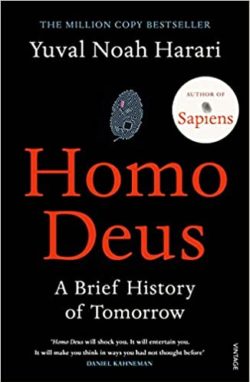
Yuval Noah Harari’s first book Sapiens completely turned my worldview upside down, and it’s no surprise that this book did it too. Though Homo Deus has more speculation than Sapiens, it was still an intriguing read.
This is especially true about his point on how we’ve all unknowingly taken up the religion of ‘Dataism’. According to its doctrine, no human experiences matter unless it can be converted into data. If you think about it, unless you post what you draw/eat/do on social media (data goldmine), or upload it to a device, does it really matter? Did it really happen? Holy moly.
There are also some sobering insights on how we literally cannot stop expanding our economy unless we want society to collapse (yippee, capitalism, but also our best system so far) and how if humans can edit their kids’ DNA to become superhumanly intelligent, it will be only the elite that can afford it. This will create a smouldering class gap as now the rich aren’t only rich, but they are also genetically smarter.
And cue, world pandemonium.
The ideas and predictions in this book are either intriguing or horrifying, depending on how you look at it. If you want to better understand history and humanity as a whole, I highly recommend this book and its predecessor Sapiens.
People are usually afraid of change because they fear the unknown. But the single greatest constant of history is that everything changes.
15. Confessions of a Recruiting Director: The Insider’s Guide to Landing Your First Job by Brad Karsh
Genre: Nonfiction, Business
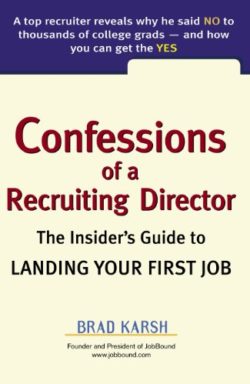
Okay, I’ve never paid much attention to high school business seminars, but this book was more useful (and interesting!) than all of them combined. However, I feel that this book is highly geared towards white-collar jobs in terms of the examples and tips it gives, so it will be a bit hard to apply its advice in the art and animation sectors.
In spite of this, it’s still a highly practical book on how exactly to write a resume and a cover letter, and also how to network. I applied Brad Karsh’s tips immediately, editing my resume in a frenzy. He also provides a handy guide of ‘before and after’ resumes near the end of the book.
Artist Note: I feel like in the art sectors, resumes are typically pushed to the side in favour of creating a good portfolio. However, learning to write one properly is still important and sets you apart from the others.
16. The Picture of Dorian Gray by Oscar Wilde
Genre: Classics, Fiction
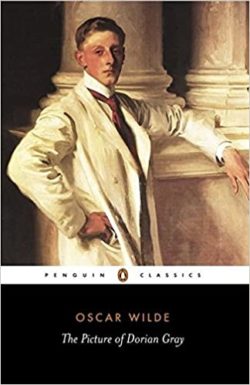
Ah, the first classic book I’ve read since Year 12 English, and possibly the one that I’ve enjoyed the most so far. Oscar Wilde’s writing is deliciously fluid, and I cackled at some of the witty interactions between the characters. Cue example:
“But beauty, real beauty, ends where an intellectual expression begins. Intellect is in itself a mode of exaggeration and destroys the harmony of any face. The moment one sits down to think, one becomes all nose, or all forehead, or something horrid. Look at the successful men in any of the learn professions. How perfectly hideous they are!
Except, of course, in the Church. But then in the Church they don’t think. A bishop keeps on saying at the age of 80 what he was told to say when he was a boy of eighteen, and as a natural consequence he always looks absolutely delightful”.
Ha.
The concepts explored in this book are mesmerising; what if we could do all the immoral things we wished to, but something else bears the consequences of our sins while our own image remains unblemished?
Artist Note: Wilde’s characters have such a callous disregard for any meaning that as an artist, it staggers me.
“Good artists exist simply in what they make, and consequently are perfectly uninteresting in what they are.” Ouch.
17. A Game of Thrones (A Song of Ice and Fire #1) by George R. R. Martin
Genre: Fantasy, Fiction
Aw, gotta love these tiny direwolf pups. Sadly, the rest of the book isn’t this cute and innocent.
Why did I not read this sooner? This book is absolutely amazing! George R R Martin’s writing is exquisitely vivid, and the detail he put into world-building is absolutely mind-blowing.
The way the four (?) storylines intertwine with each other is a wonder to read, and all the characters have so much depth. The character dialogues are amazing and kept me on my toes. This is definitely going to become one of my favourite series of all time.
Reading GoT is an experience that cannot be described. I’ve never read a fantasy novel that felt so real, with its descriptions of everything, from the food, to the clothing, the atmosphere, and the ugly flaws that are imbued within the characters.
Artist Note: Read above on descriptions. The scenes are practically drawing themselves at this point.
“When you play the game of thrones, you win or you die. There is no middle ground.”